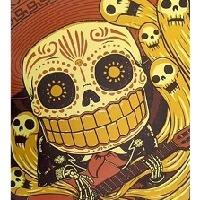Many of us in the board game hobby love our collection. Some of us have many, many Kallax shelves with dozens upon dozens of games, others, like myself, have maybe 80 or so small games stashed under the sofa and in a small cupboard, and others still only have a handful. Normally I would say, it doesn't matter how many games you have, but for the purpose of this article I want to look at if maybe some of us have too many games. (This topic was inspired by the always wonderful Bez.)
There are many reasons why someone's board game collection is the size it is. Some of us want to be able to play a game with anyone who visits (that is, once we can visit each other again), so we have a selection of different types of games available, even if we probably ever only play four or five of them regularly.
Others are collectors of sorts, and maybe always want to have the latest and hottest games, or maybe they collect special editions or rare games. Just like any collector, these people will accumulate more and more games over time and will probably never sell any of them, because they're all special and important to them. Chances are, many of these games will never be played, because they need to be kept in pristine condition.
The common theme here is that a lot of the games in these collections either never get played, or maybe only get played once or twice and then put away and never again see the light of day - or maybe only once in a blue moon. That seems like a real shame, because games are there to be played and enjoyed, but it's also an indication of our consumer society, our single-use approach to a lot of products.
I fully understand how nice it feels to have a large board game collection. You have a feeling of pride, you've invested a fair amount of time, and money, into these games. You probably also made some tough decisions when it came to choosing what game to buy next. It feels like a life's work and knowing that you have a huge choice of games to play, is just satisfying.
However, maybe it's time to change our approach. I would argue that we should take a long, hard look at our collections and see which games we played maybe once or twice, but probably won't ever play again. Maybe there are games that are just a bit too complex and we can't be bothered to invest more time in learning them. Maybe there are games that are only really fun at a player count that we will probably never reach. Maybe we have played a game so often, that it is no longer interesting and feels more like you're going through a routine.
I think many of us will have games at home that fall into one of those categories or are games that we're unlikely to play again for other reasons. It's time that we move these games on and let others enjoy them. You can sell them on, trade them for other games, give them to a charity, a community club, maybe even your local library or give them to a friend or family. There are probably other ways of culling your collection.
Another option might be to have a games group to share your games with. I know, we can't meet in person at the moment, but before this all happened, my games group was like that. All of us have a few games that we would play together. That would give us plenty to choose from, without anyone owning a lot of games alone. My friends would also often play with other friends or with their family, so these games got a good amount of play out of them.
I think sharing games and maybe even loaning games to others, are great ways to reduce the need to buy lots of games. You can maybe even swap games with friends and family. Again, that's something I used to do a fair bit, before the pandemic, swapping games with my in-laws. It meant I could play lots of different games without having to buy them all myself.
Of course, there are also people who don't share games or are part of games group. They just buy the odd game here and there, because a friend recommended it to them or it's like another game that they love, but have played a lot now. These people will probably regularly move games on that they've played enough - and I'm sure they love their small collection and they love every single game in it.
I think that's where I want to be with my collection. I want to have only games that I enjoy playing and that I play regularly. There will be some games I will keep, because they have a special meaning to me, even if I play them hardly at all, but I think that's fine, as long as it's only a few and not a dozen. Of course, I will probably always have more games than I really need, because I review games, but I will always endeavour to move these games on, unless I really enjoy them and want to continue playing them of course.
I think it's important that we think carefully about what games we buy and keep. The less we buy generally, but also with regards to board games, the lower our impact on the environment. I appreciate that a game made from cardboard and wood is probably not as terrible as other things, but we've seen an increase in plastic miniatures, so our hobby is starting to have a bigger impact on the environment than it used to.
Also, if we can share our games with others, maybe donate them to charities or community clubs, and if we generally pass our games on, even if it's for money, I think we will have a more positive social impact than if we just kept the games to ourselves. I think our hobby is about having fun and it would be great if we could share that fun with lots of people.
So what is your board game collection like? How many games do you own? Do you share them with friend, family or your games group? Do you ever trade games? Do you tend to cull your collection regularly and only keep those that you still enjoy playing? Do you think about the environmental impact of the games you buy? I'd love to hear your thoughts. Please share them in the comments below.
 Games
Games How to resolve AdBlock issue?
How to resolve AdBlock issue? 






















